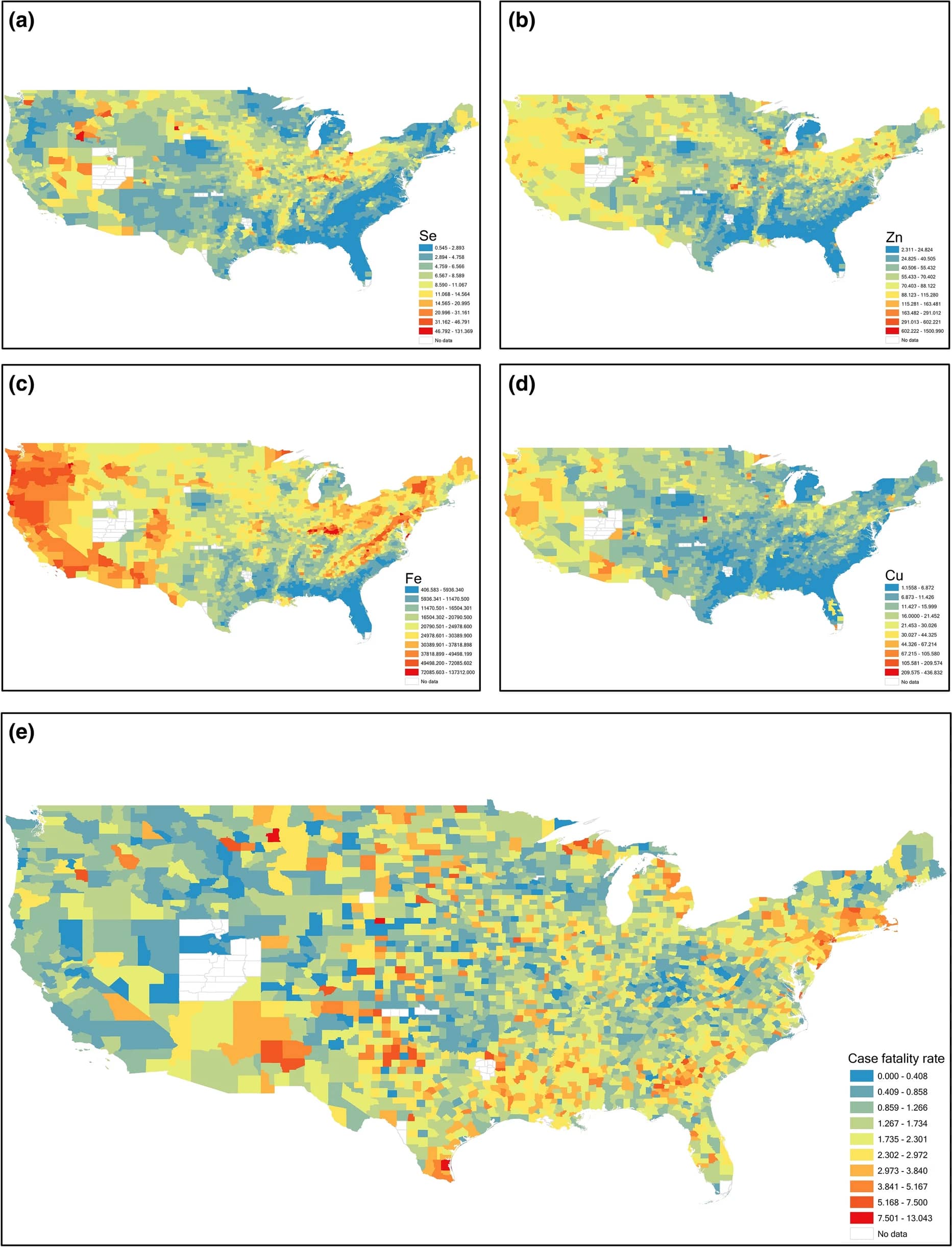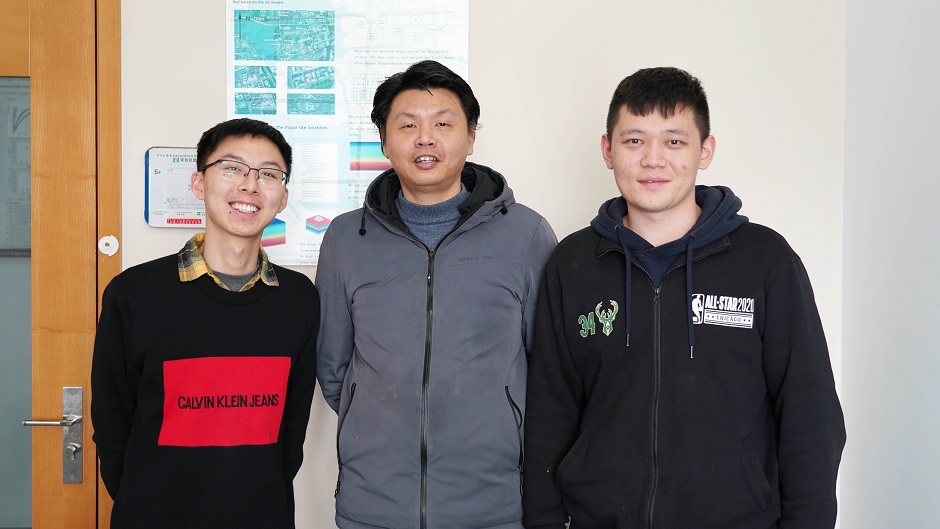A research team from Xi’an Jiaotong-Liverpool University recently investigated the association between concentrations of zinc, selenium, iron and copper in surface soils and the case fatality rate of Covid-19 in the USA.
They found that counties with the lowest concentration of zinc had the highest case fatality rate of Covid-19, suggesting zinc deficiency may affect the severity of Covid-19.
The research was led by Dr Ying Chen from Wisdom Lake Academy of Pharmacy, and Dr Zheng Feei Ma and Dr Linxi Yuan from the Department of Health and Environmental Sciences. Their findings are published in Environmental Geochemistry and Health, the official journal of the International Society for Environmental Geochemistry and Health.

The geographical patterns of selenium, zinc, iron and copper concentrations and Covid-19 case fatality rate across conterminous USA at the county level, based on data from 31 December 2020.
The research team analysed the concentrations of trace elements in soil from 3,057 counties in the USA, covering 98% of the total counties. They compared the data with Covid-19 case fatality rates in the same locations over 24 weeks, from 8 October 2020 to 25 March 2021. The findings unearthed a possible link between the distribution of trace elements in soil and rate of Covid-19 fatalities.
“The lower the concentration of zinc in surface soils, the higher the case fatality rate of Covid-19. Our results indicate that zinc, among the four trace elements tested, has the highest chance of impacting Covid-19 case fatality rate,” says Dr Chen.
The findings support existing clinical evidence showing that Covid-19 patients with the most severe Covid-19 symptoms often have low levels of zinc. This study is the latest to highlight a possible association, however, more research is required to understand the nature of the relationship, and whether zinc deficiency increases the chance of mortality from Covid-19.
Impact on immunity
The four types of trace elements investigated in this study – selenium, zinc, iron, and copper – are already known to be linked to human immunity.
“Selenium is an important component of glutathione peroxidase in the human immune system. Long-term deficiency of selenium intake is likely to cause endemic diseases such as Keshan disease (a myocardial disease) and Kashin-Beck disease. Zinc, as a component of various metal enzymes and activator of certain enzymes, can enhance physical immunity. A lack of iron and copper intake may increase the risk of some viral infections,” Dr Yuan explains.
The geographical distribution of these trace elements can influence the health of the local population. Particularly, it has been shown that a low concentration of zinc in soil is one of the major factors associated with zinc deficiency in crops and humans.
However, the extent to which trace elements in soil enter human circulation still requires further research.
According to Dr Yuan, this interdisciplinary study highlights the importance of investigating the geographical distribution of trace elements from the perspective of environmental nutrition. These elements may be found in trace amounts, but their influences may be significant.
In the future, the research team will continue their collaborative research to further explore the relationship between environmental health and trace elements such as selenium, iodine, zinc and others.
Dr Ma explains: “Trace elements come from the environment we live in, including the soil, water, and atmosphere. They affect human health through food chains and environmental flow, and their importance lies not only in the maintenance of human health but also in the health of other organisms in ecosystem.”
The study is Geographical distribution of trace elements (selenium, zinc, iron, copper) and case fatality rate of COVID-19: A national analysis across conterminous USA, and can be read here.
Reported by Luyao Wang
Edited by Luyun Shi and Catherine Diamond
Translated by Yuting Xiao




